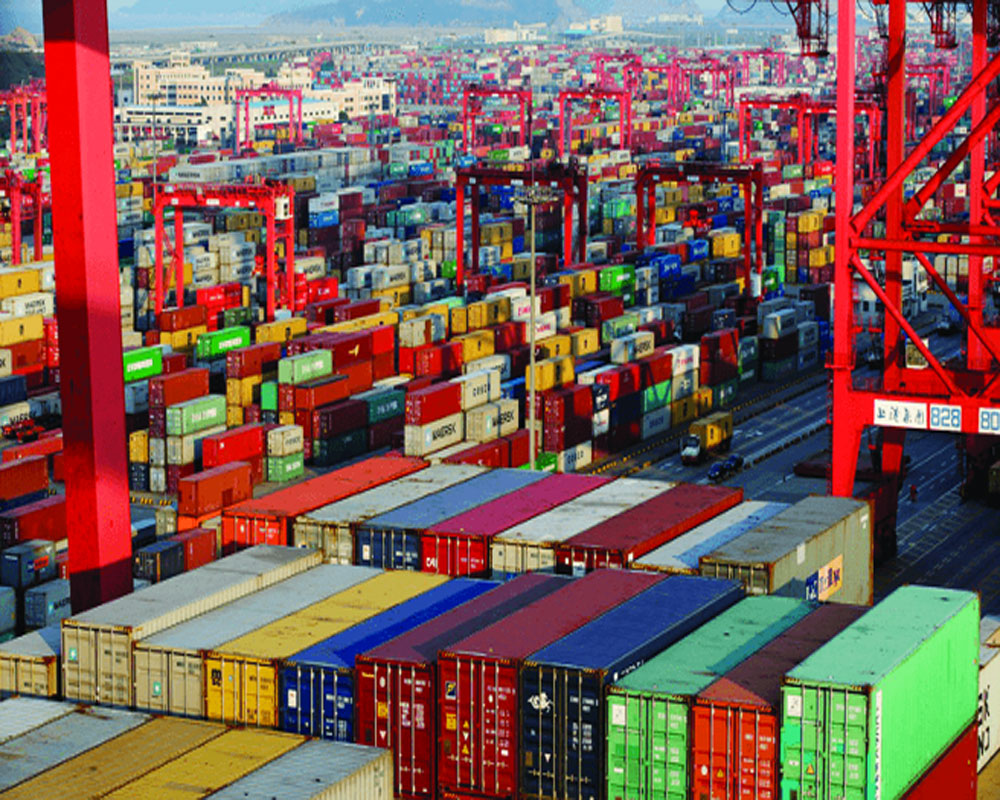Globalisation has become so strong that complete economic decoupling of a country or region is not feasible. De-risking and realignment is the way forward
This is not a world of decoupling, rather it is of de-risking and realignment. The Ukraine war has thrown many questions on the existing world order, including on the effectiveness of the United Nations. However, one thing that has emerged is that globalisation in the last two decades has become so strong that complete economic decoupling of a country or region is neither feasible nor justifiable. De-risking and realignment is the only way forward for Nations to make economic progress. Most powerful nations have openly stated that they want to build economic resilience for themselves, based on a strategy of “diversifying and deepening partnerships and de-risking, not decoupling”.
Despite the best of efforts by NATO it has not been able to decouple Russia. Russia continues to trade within Asia and also with Europe and Africa. For example, the Russian commercial nuclear technology industry has been used in Europe, to meet the energy requirements of the West. It has been well realised that the priorities of nations for trade may change with each other. However, the isolation of one country by a group of countries leads to disruption in trade and a lack of development of nations at large. Isolation of Nations may therefore not be a good idea in the future particularly if the sustainable development goals of the UN are to be met. "We are totally opposed to the idea of decoupling. Decoupling is an illusion," French Finance Minister Bruno Le Maire said. He added, "There is no possibility of having any kind of decoupling between the American, European and Chinese economies."
It has also been well recognised by now that decoupling of China may not be possible however 'de-risking' of economies vulnerable to debt trap diplomacy of China is a must for an overall just World. The US treasury secretary during his Beijing visit acknowledged that decoupling from China was virtually impossible. Tit-for-tat exchanges over tariffs have reinforced the popular view that so-called decoupling has largely involved discouraging imports, which is not decoupling, it is more or less protection of one's own industry which has been happening for decades and is nothing new. From the Chinese perspective, however, derisking is a strategic shift whereby China switches its focus from economic growth to economic control. The term dual circulation is used for this control which refers to complete control of external and internal trade, this is more of an expansionist trade policy that goes hand in hand with its military policy. This kind of expansionist 'de-risking' by China is threatening the world trade order and therefore countries have started talking about 'decoupling' from China.
India's approach to cooperation and mutually beneficial trade between countries is likely to gain traction globally, particularly in the countries of the Global South. It's about time, the Global South is given its due as far as the dividends of trade are concerned. De-risking their economies from China could be an important step in that direction. De-risking economies also include catering to climate change and the changes associated with it. The transfer of technology to enable change towards clean energy by the Global South is also a process of de-risking not only for these nations but also for humanity.
So when the West has already realised that decoupling from China is not possible and de-risking is essentially important, what are the steps for de-risking economies of the Global South? The policy of de-risking and plans for developing the Global South are two major strategies that go hand-in-hand. Economic globalisation is essential for the Global South, and essentially transfer to technology is important for them. De-risking the Global South would entail building its infrastructure and transfer of technology so that it can self-sustain in times of natural calamity and pandemic-like situations. Making their economies dependent on foreign investments is not the way forward. India has been taking the initiative to de-risk the economies of the Global South by including them in a policy framework that is more equitable.
The other thing that is emerging is that countries must de-risk themselves from countries like China to check its expansionist policy, which goes beyond economic realms and also fiddles with the political and social fabric of countries. De-risking must curb China’s access to top-notch innovation around the world, Unlike decoupling, de-risking should not seek to curb access to less sophisticated technology. De-risking should also aim to slow the progress of the Chinese military. Preventing the Chinese army from accessing advanced technology with military applications should be done at all costs. This highlights how de-risking spans both economics and defence.
Over-reliance on exclusive Chinese products also needs to be reduced in the world for eg wrt the transition to clean energy. The world must ensure the safety of supplies for critical raw materials required for shifting to green energy (such as lithium), technologies (including electric-vehicle batteries), and equipment (such as solar panels) that will be crucial to net-zero emissions are not an exclusive property of one country alone.
Yes, this is not an era for war and may be not for decoupling either but it is definitely an era of de-risking. An era when humanity needs to strive towards common goals, de-risking itself from those who have monopolistic tendencies. Larger good must always prevail in our minds cutting across borders and selfish interests. If the sustainable development goals of the UN are to be met any time soon this is a prerequisite.
(The writer is expert on geopolitics and international Affairs. The views expressed are personal)


























